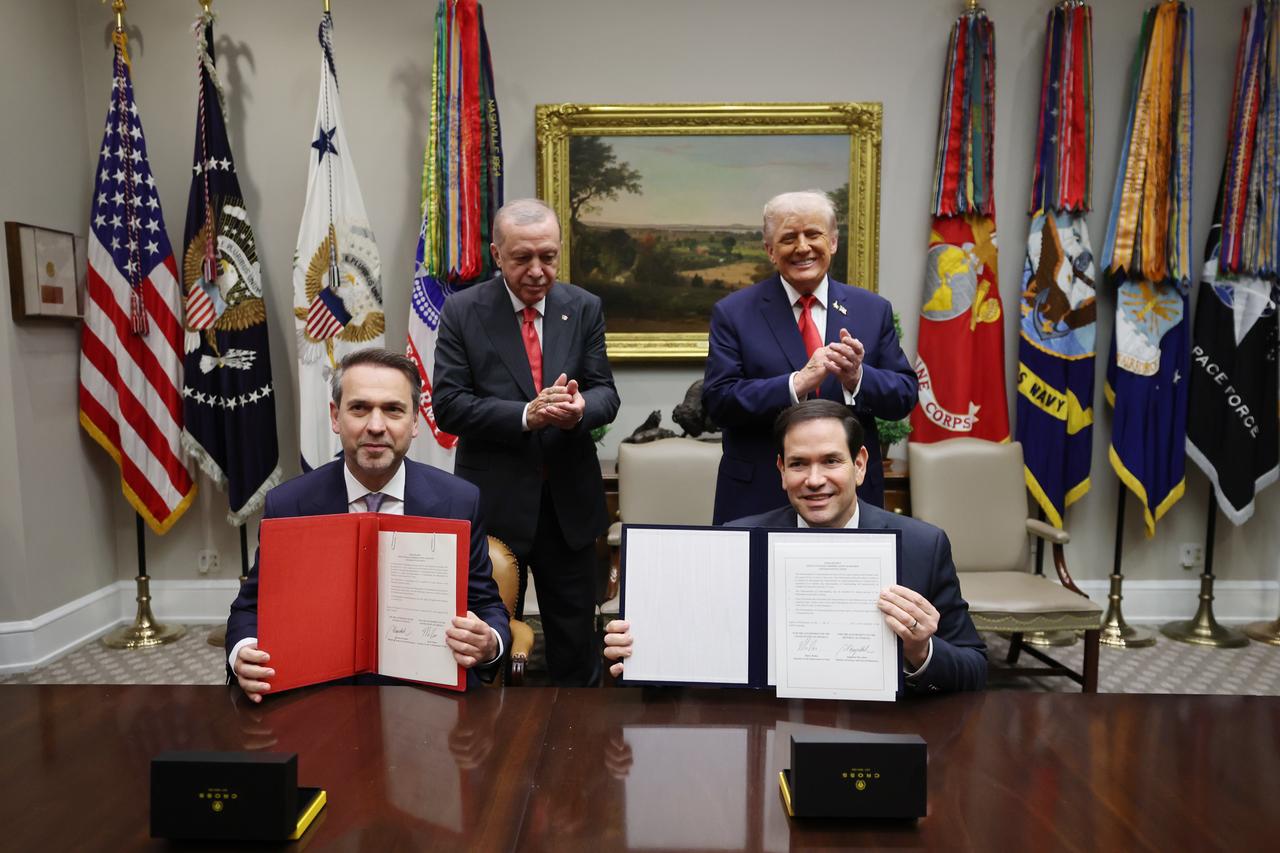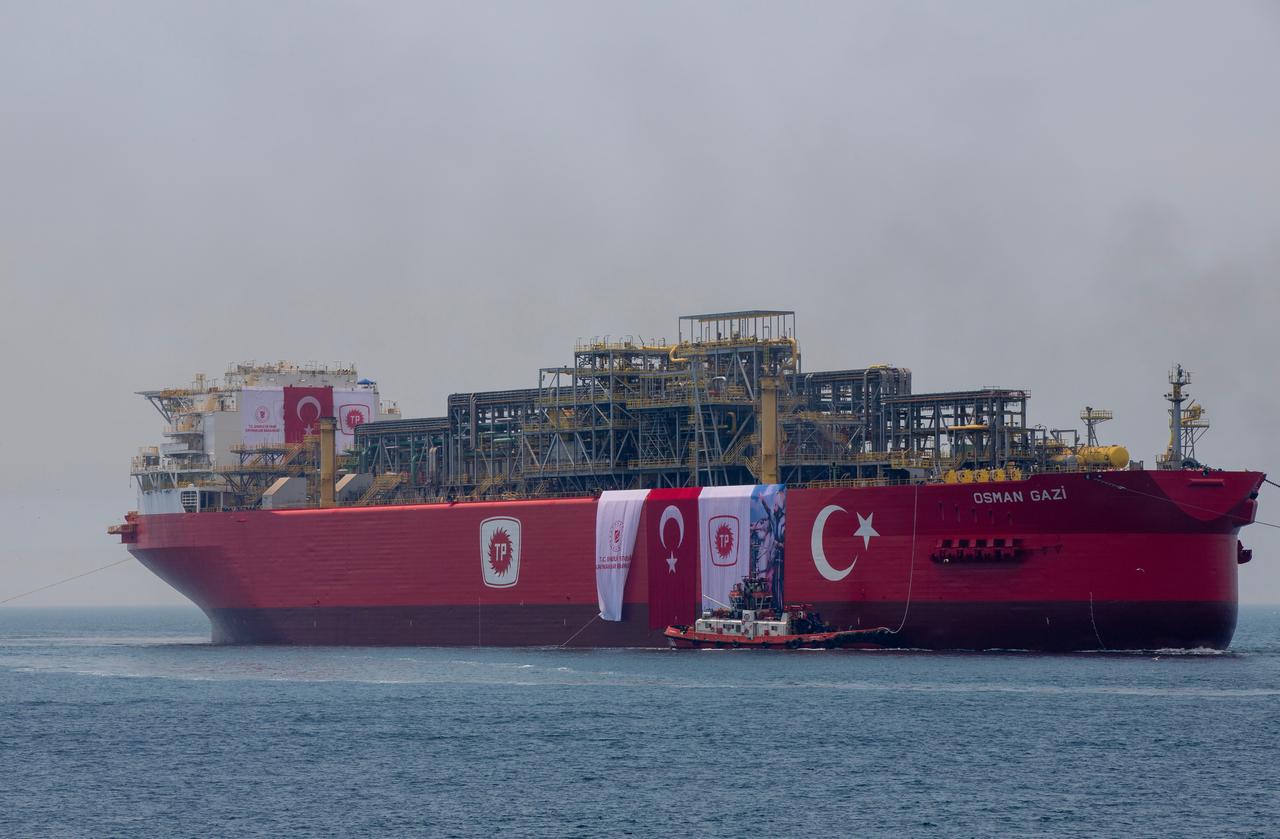
Türkiye has pursued energy diversification since the 1990s and will continue to expand its sources, Energy and Natural Resources Minister Alparslan Bayraktar said in a televised interview on Thursday, pointing to growing gas imports from the United States, rising Black Sea production, and major nuclear power projects.
Speaking on a live broadcast on CNN Turk, Bayraktar said his recent U.S. trip had two parts: first linked to the U.N. General Assembly in New York and later to meetings in Washington with U.S. President Donald Trump.
“There were very important developments regarding Palestine, bilateral meetings, and then a meeting with Trump,” Bayraktar said. He described the Washington talks as “very sincere and constructive,” noting both leaders reiterated their $100 billion trade target, with energy as a key sector.
“Trump is very result-oriented. He has great respect for our president, and this creates a great opportunity for cooperation,” Bayraktar said, adding that oil and gas were central to the discussions.

Bayraktar emphasized Türkiye’s long-term diversification strategy. “Many countries are implementing diversification strategies. You need to diversify supply. Türkiye has been implementing a diversification strategy since the 1990s,” he said.
He noted that 11% of Türkiye’s current natural gas supply comes from the U.S. “Natural gas is environmentally friendly and widely used. We are the fourth-largest natural gas consumer in Europe,” Bayraktar said, highlighting agreements with Algeria and Nigeria dating back to the 1990s.
Since 2016, he said, Türkiye quintupled its LNG regasification capacity from 30 million cubic meters to 161 million cubic meters per day. “Thanks to this, today 11% of our natural gas comes from the U.S.,” Bayraktar said.
Bayraktar said Türkiye is positioning itself as a key LNG pricing hub, noting price differentials across markets. “In Japan, the price of 1,000 cubic meters of gas is $413; in Europe, it is $404; in the U.K., $391; and in the U.S., $103,” he said.
“After 2027, we will get the cheapest gas after our own production and Turkmen gas,” he added, stressing the need for secure supply from Russia, Turkmenistan, Azerbaijan, Iran and Türkiye’s expanding Black Sea reserves.
Bayraktar outlined rapid progress in Black Sea gas development, with plans to double production by 2026 and quadruple it by 2028.
“Our Osmangazi production platform in Filyos involves 19 units built in different locations. By next year, we will commission the platform. From 9.5 million cubic meters, we will reach 20 million cubic meters—enough for 8 million households,” Bayraktar said.
By 2028, he added, production is expected to cover 16 million households, with annual output reaching 15 billion–16 billion cubic meters. New exploration at Goktepe is slated to start in 2030.
“By the New Year, there will be five drilling vessels in the Black Sea,” he said, with another ship operating elsewhere.
Bayraktar reaffirmed Türkiye’s commitment to the Akkuyu nuclear power plant. “It is the world’s largest nuclear construction project, the biggest foreign capital investment in our history, with four reactors being built simultaneously. Why would we give it up?” he said.
Türkiye aims to operate Akkuyu’s first reactor in 2026 and build two additional nuclear plants, Bayraktar said. He stressed the global push for nuclear power to fight climate change and meet surging electricity demand driven by artificial intelligence and electrification.
“We are entering a nuclear renaissance, and Türkiye will be one of the leading countries,” he said, adding that small modular reactors could eventually allow Türkiye to produce its own nuclear technology.